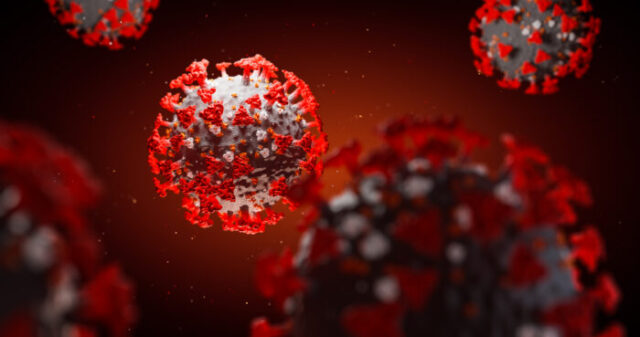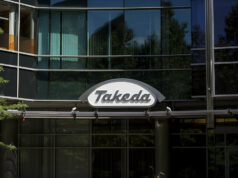
Drug developers are still trying different approaches to treating Covid-19 but clinical trial results this week halted several potential therapies, including two that are part of a National Institutes of Health program evaluating treatments for hospitalized patients.
The NIH’s Accelerating Covid-19 Therapeutic Interventions and Vaccines (ACTIV) program launched to speed up the development and testing of treatments and vaccines. The study uses an adaptive two-stage design for the Phase 3 test. A treatment that demonstrates safety in stage 1 can proceed to stage 2, following review by an independent board.
VIR-7831, an antibody from Vir Biotechnology and its partner GlaxoSmithKline, met the criteria to continue to the next stage of the NIH study. But the companies said this week that they were told analysis of the available data “raised concerns about the magnitude of potential benefit.” The interim analysis was a pre-planned review of the first 300 hospitalized patients in the study. No safety problems were reported. The independent board recommended that enrollment be closed while the data mature.
San Francisco-based Vir designed its antibody to offer “dual action.” It blocks the virus’s entry into healthy cells and clears away infected ones. This antibody also binds to a part of the novel coronavirus that is shared with the virus that causes SARS, which Vir has said may make it more difficult for resistance to develop.
The pause on testing of the Vir antibody was followed by the failure of an antibody combination from Brii Biosciences. The two neutralizing antibodies, BRII-196 and BRII-198, are made from the plasma of recovered Covid patients. The company, which splits its operations between Durham, North Carolina and Beijing, engineered those antibodies to reduce the risk of antibody-induced enhancement, a phenomenon in which antibodies recognize and bind to a pathogen but are unable to neutralize it. The company also has preliminary lab data suggesting these antibodies can address the variants from the U.K. and South Africa.
In the NIH-sponsored study enrolling about 300 patients, half received the Brii antibodies while the other half received the standard of care, which has evolved to include newly authorized products, such as Gilead Sciences antiviral remdesivir (Veklury) and the steroid dexamethasone. An independent analysis determined that the antibodies did not meet the efficacy threshold needed to advance to next stage of testing. Brii did not disclose additional details but the company said it will work with the clinical trial investigators to understand the data, which it will publish.
In a prepared statement, Brii CEO Zhi Hong said his company will continue to evaluate the antibody combination in Covid patients who are not bedridden. He added that he is confident in the therapy’s antiviral activity against the newly emerging variants of the novel coronavirus.
The only remaining antibody therapy in the NIH’s ACTIV program is AstraZeneca’s AZD7442. The experimental treatment is a combination of two long-acting antibodies derived from recovered patients who have recovered from Covid infection. Those antibodies, developed by Vanderbilt University Medical Center, were licensed by the U.K.-based pharmaceutical giant last June. The Phase 3 study of the AstraZeneca therapy has not yet enrolled enough patients to report interim data.
Another way that drug developers have been trying to treat Covid-19 is by addressing the immune system’s response to the disease. Apellis Pharmaceuticals develops drug that stop excessive activation of the complement system, a family of proteins that complement the immune system.
The Apellis Covid drug candidate, APL-9, is designed to block the complement system protein C3, which may address uncontrolled activation of the complement system. It’s similar to the approach taken by the company’s lead drug candidate, pegcetacoplan, a potential treatment for the rare complement system disorder paroxysmal nocturnal hemoglobinuria.
Apellis tested its intravenously infused Covid treatment in a randomized, placebo-controlled Phase 1/2 study enrolling 66 patients with respiratory failure that was secondary to their Covid infection. Those patients were given the Apellis therapy in combination with the standard of care. The company said Thursday that an independent review found no meaningful reduction in the overall death rate in patients who received APL-9 compared to those who received the standard of care alone. No safety signals were reported. Apellis said it will analyze the data and present the full study results at future scientific meeting.
Inefficacy isn’t the only reason studies are halting. Last year, Durect began a Phase 2 study to assess whether DUR-928, its potential therapy for alcohol-associated hepatitis, could also treat liver or kidney injury in Covid-infected patients. In its announcement of fourth quarter and full year 2020 financial results Thursday, the Cupertino, California-based company said that since the authorization and global launch of several Covid vaccines and therapies, fewer patients are eligible or willing to participate in a clinical trial. Consequently, Durect decided to stop its Covid study.
Credit: Maksim Tkachenko, Getty Images








